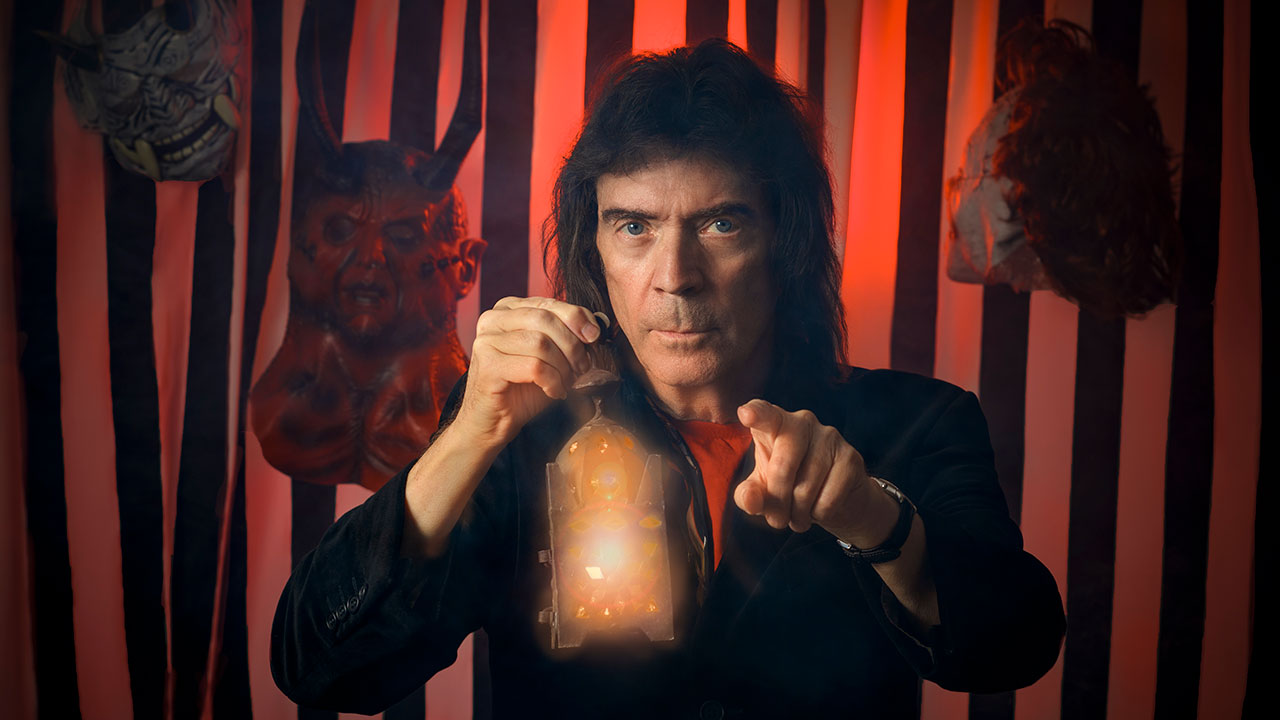“Having a narrative stretches you… you’re having to come up with a ‘film for the ear’ to bring the lyric to life”: 49 years on, Steve Hackett returns to the concept album genre
Semi-biographical time-travel story The Circus And The Nightwhale echoes the intentions (but not the music) of Genesis’ The Lamb Lies Down on Broadway and The Beatles’ Sgt. Pepper

Steve Hackett’s The Circus And The Nightwhale is his first full-blown concept album since 1975 solo debut The Voyage Of The Acolyte. Arriving on February 16 via InsideOutMusic, the narrative is based on the rites of passage and adventures of a character named Travla – but to all intents and purposes it’s autobiographical.
“It starts off in 1950 and then it’s a travel through time and personal experiences,” Hackett explains.“Lyrically it’s a description of my first impressions of the world, and then certain characters that I met. But then it moves into more and more fantastic and imagined situations.”
Hackett rates Genesis’ narrative concept album The Lamb Lies Down On Broadway as “one of the finest prog rock albums of all time”,and plans to play highlights live in 2024. However, he says the trials and tribulations of its protagonist, Rael, had little or no influence on the unfolding story of The Circus And The Nightwhale.
“I’ve got to do what comes naturally and it’s better not to start off with a concept than commission yourself from the word go,” he says. “If you’re playing from the heart or just having fun, you’ve got a better chance of doing something that’s honest. And then maybe, one or two tracks in, you realise where you’re headed.”
The lyrics are co-written by Hackett’s wife and long-time collaborator, Jo. “Having a narrative stretches you,” he says. “It takes you outside your comfort zone, and you’re also having to come up with a score for a ‘film for the ear’ to bring the lyric to life.”
The Circus And The Nightwhale took two years to record between touring commitments. It features Hackett’s regular band plus Amanda Lehmann on vocals, John Hackett on flute, guest drummer Nick D’Virgilio and Malik Mansurov on the tar. “There are some extraordinary performances,” Hackett says.
As a time-travelling journey, the album incorporates a number of different musical styles beginning with an evocation of the post- war era – when, as Hackett says, “the world was in chaos, but culturally it was still being controlled; so I wanted to get that feeling across where rock’n’roll literally had to burst out.
Sign up below to get the latest from Prog, plus exclusive special offers, direct to your inbox!
“John Lennon said he thought Genesis were true sons of The Beatles,” Hackett adds, and he identifies their influence on the album: “I think music was never the same after Sgt. Pepper’s... , and it comes into my mind with the idea of trying to get all these eras of song together on one album.”
Enter The Ring features sections of 12-string guitar, with vocal harmonies between himself and Lehmann. “There’s a Genesis feel but it’s taken onto another level,” he explains. By contrast is the “rock noir” of Get Me Out! “There are lots of moments when the action hots up and I want to be able to do things at great speed, and Rob Townsend is doing extraordinary runs on sax. The album is very energised and full of great playing too.”
I’m still in love with the sound of the guitar and the potential of where it can go
Hackett used effects and multi-tracking to increase the sonic possibilities of his guitar. “And it does sound huge,” he enthuses.“I know guitarists will like it.”
Jeff Beck, whom he admired, passed away while Hackett was recording.“I kept thinking to myself, is this something he would have liked? Because he always managed to do the unusual,” he says.
He also notes that Beck said that he’d always tried to be “naughty” in his playing. “I’m still in love with the sound of the guitar and the potential of where it can go.”
Mike Barnes is the author of Captain Beefheart - The Biography (Omnibus Press, 2011) and A New Day Yesterday: UK Progressive Rock & the 1970s (2020). He was a regular contributor to Select magazine and his work regularly appears in Prog, Mojo and Wire. He also plays the drums.

